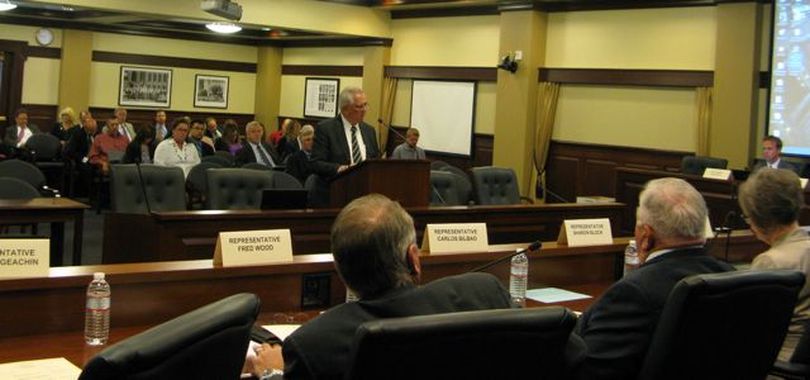Prospects dim for private insurance exchange, regulatory issues raised with fed exchange

Idaho state Department of Insurance Director Bill Deal's update to lawmakers this morning on the progress of the governor's health insurance exchange working group included some eye-openers for legislators on the Health Care Task Force, from impacts of a federal exchange on Idaho's current insurance regulations to prospects dimming for a privately run option.
Sen. Steve Vick, R-Dalton Gardens, asked, "Do we have any idea yet how much flexibility (Idaho would have), with regard to what we can do differently in a state exchange than in a federal exchange?" Deal responded, "I would say we have some latitude in areas that I think are important to Idaho. An example would be how our producers are allowed to do business with an exchange." He listed an array of things the state would retain in a state-run exchange, including its current regulatory authority over insurance companies and approval of rates and policy provisions. "Are you saying that if we go to a federal exchange, that we will lose the ability to regulate insurance companies in Idaho?" Vick asked. Deal said, "If we go to a federally facilitated exchange, we pretty much lose the authority to regulate the health insurance industry in Idaho."
In response to questions from Sen. John Goedde, R-Coeur d'Alene, Deal said there are 782 insurance companies licensed to sell health insurance in Idaho, but only about 192 have done so. Idaho's premiums are among the lowest in the country, Deal said, and the state has the fewest mandates on insurance companies as far as what must be provided in their policies.
Goedde asked about an option he's pressed for, a privately run exchange, or a public-private hybrid, rather than a federally or state-run exchange. Deal responded, "I don't see that there's another option. ... The hybrids probably aren't going to meet muster. ... At our last meeting we talked a little bit about Utah. The last we heard is their hybrid might not work, and for sure they don't have an individual exchange that will be approved at this particular time the way they're approaching it."
At the working group's next meeting tomorrow, it'll hear from officials from Colorado and Nevada to "get some updates on a fast way to move, if we should decide to," Deal said. With a Nov. 16 deadline looming for Idaho to notify the federal government about its exchange plans, that might be a possible route, "if Idaho could participate with some of the infrastructure that they have in place," Deal said. In October, the group will receive a consultant's cost-analysis study.
